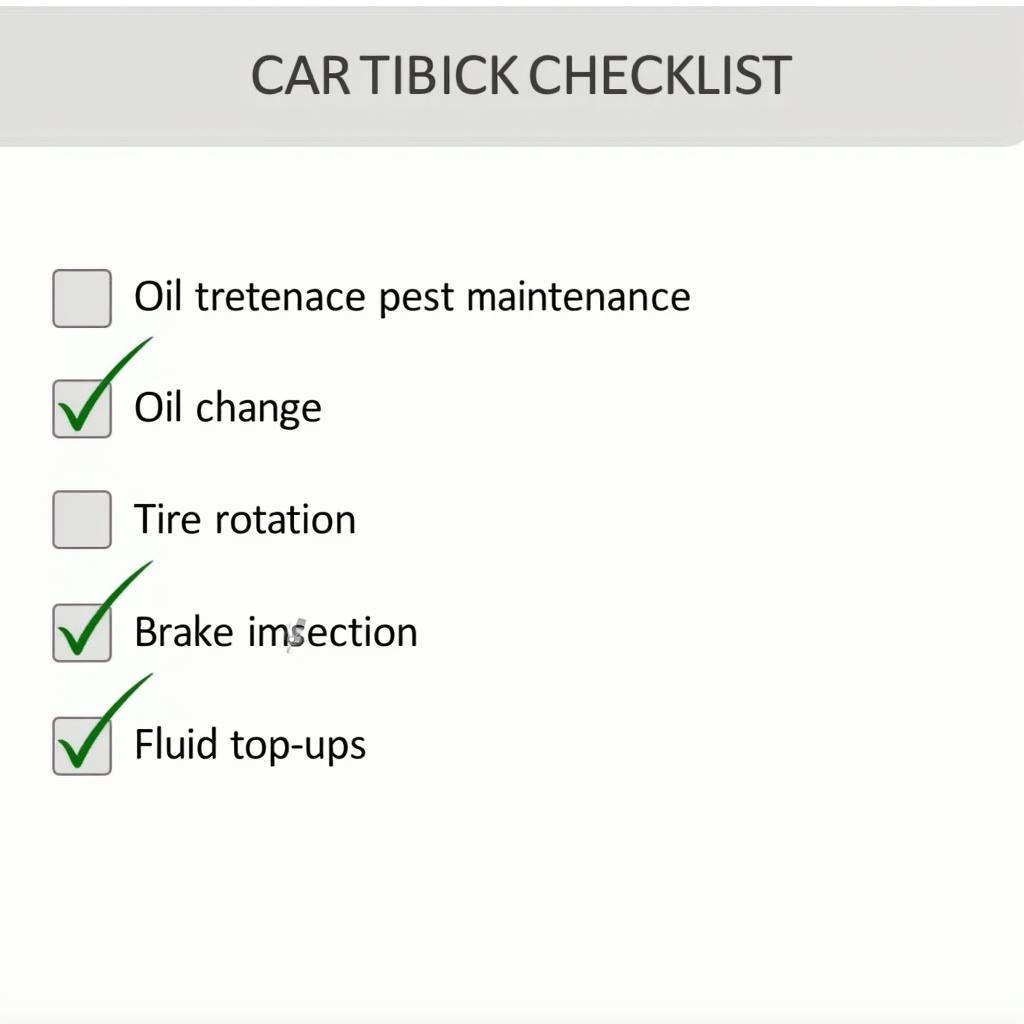When your car needs some TLC, a car service center is your one-stop shop for everything from routine maintenance to complex repairs. But what exactly can you expect when you drive your vehicle into a service center? This comprehensive guide dives deep into the diverse range of services offered at a typical car service center, empowering you with the knowledge to keep your car running smoothly for years to come.
A Wide Spectrum of Services
Car service centers are designed to handle virtually every aspect of vehicle care, providing a comprehensive approach to maintenance and repair. Here’s a closer look at the key services you can find:
Routine Maintenance: The Foundation of a Healthy Car
Just like our bodies need regular checkups, our cars thrive on routine maintenance. These preventative services are crucial for:
- Extending the life of your car: Regular maintenance catches minor issues before they escalate into costly problems.
- Optimizing fuel efficiency: A well-maintained engine burns fuel more efficiently, saving you money at the pump.
- Ensuring safety: Routine checks of brakes, tires, and lights keep you and your passengers safe on the road.
Here are some of the most common routine maintenance services offered:
- Oil and filter changes: Essential for engine lubrication and performance.
- Tire rotations and balancing: Ensures even tire wear and optimal handling.
- Brake inspections and pad/rotor replacement: Keeps your braking system responsive and reliable.
- Fluid checks and top-offs: Maintains proper levels of essential fluids like coolant, transmission fluid, and power steering fluid.
- Air filter replacement: Promotes clean airflow to the engine, improving performance and fuel efficiency.
Diagnostic Services: Pinpointing the Problem
Modern cars are complex machines with intricate electronic systems. When a warning light pops up on your dashboard or your car starts acting unusual, diagnostic services are crucial for:
- Accurately identifying the root cause of the issue: This eliminates guesswork and prevents unnecessary repairs.
- Saving time and money: By identifying the exact problem, technicians can perform targeted repairs, saving you both time and expense.
Car service centers employ advanced diagnostic tools and techniques, including:
- On-board diagnostics (OBD) scanners: These devices connect to your car’s computer system to retrieve diagnostic trouble codes (DTCs), providing valuable insights into the problem.
- Visual inspections: Experienced technicians visually inspect your car for any signs of wear and tear, leaks, or damage.
- Performance tests: These tests evaluate how well your car’s systems are functioning, helping to identify potential issues.
Repairs: Getting You Back on the Road
From minor fixes to major overhauls, car service centers have the expertise and equipment to handle a wide range of repairs:
- Engine repair: From tune-ups to complete engine rebuilds, service centers can address a variety of engine-related problems.
- Transmission repair: Whether you have a manual or automatic transmission, service centers can diagnose and repair issues with gears, clutches, and other components.
- Brake repair: Keeping your brakes in optimal condition is paramount for safety. Service centers can handle everything from pad and rotor replacements to brake line repairs.
- Suspension and steering repair: Ensures a smooth and controlled ride by addressing issues with shocks, struts, tie rods, and other suspension components.
- Electrical system repair: From faulty wiring to malfunctioning sensors, service centers can diagnose and repair electrical problems that can plague modern vehicles.
- Heating and air conditioning (HVAC) repair: Keeps your car’s cabin comfortable year-round by addressing issues with the AC, heater, and ventilation system.
Additional Services: Convenience and Peace of Mind
In addition to core maintenance and repair services, many car service centers offer additional services for added convenience:
- Tire sales and installation: Find the right tires for your car and have them professionally installed.
- Wheel alignment: Ensures your car tracks straight and true, improving handling and tire life.
- Battery testing and replacement: Get your battery tested and replaced if necessary.
- Wiper blade replacement: Maintain clear visibility in all weather conditions.
- Headlight restoration: Improve visibility and safety by restoring cloudy or yellowed headlights.
Some service centers may also provide:
- Pre-purchase inspections: A thorough inspection before you buy a used car can save you from costly surprises down the road.
- Fleet maintenance programs: Tailored maintenance plans for businesses with multiple vehicles.
Choosing the Right Car Service Center
With so many car service centers to choose from, it’s essential to find one that meets your needs and provides trustworthy service. Consider these factors when making your decision:
- Reputation: Look for a service center with a solid reputation in your community. Online reviews can be a valuable resource.
- Experience: Choose a service center with experienced technicians who are familiar with your car’s make and model.
- Pricing: Get quotes from multiple service centers to compare prices.
- Customer service: Pay attention to how you’re treated. A good service center should be responsive to your questions and concerns.
Conclusion: Your Car’s Trusted Partner
A car service center plays a vital role in the life of your vehicle, providing a comprehensive range of services designed to keep it running smoothly, safely, and efficiently. By understanding the diverse array of services available, you can make informed decisions about your car’s maintenance and repair needs, ensuring a positive ownership experience for years to come.
FAQ
What is the difference between a car service center and a mechanic?
While the terms are often used interchangeably, a car service center typically refers to a more established business with multiple technicians and a wider range of services compared to an independent mechanic.
How often should I take my car in for service?
Refer to your owner’s manual for recommended service intervals. As a general rule, most cars benefit from an oil change and basic check-up every 5,000-7,500 miles.
Can I take my car to a service center even if it’s still under warranty?
Yes, you can usually take your car to any licensed service center, even if it’s still under warranty, without voiding the warranty.
What should I do if my car breaks down unexpectedly?
If possible, try to safely move your car off the road. Then, contact your trusted car service center or a roadside assistance provider.
How can I be sure I’m not being oversold on unnecessary repairs?
Ask for a detailed explanation of any recommended repairs and don’t hesitate to get a second opinion if you have any doubts.
What other car maintenance topics can I find on CarServiceRemote?
For a deeper dive into car maintenance, check out our article on what they do in car service.
Need help finding a reliable car service center near you?
Contact us on WhatsApp: +1(641)206-8880, Email: [email protected]. Our team is available 24/7 to assist you.


